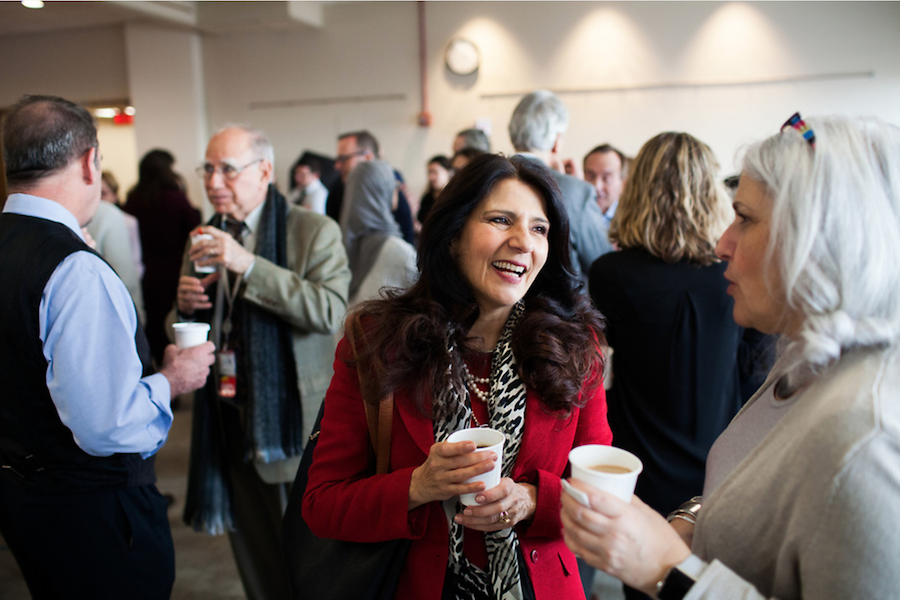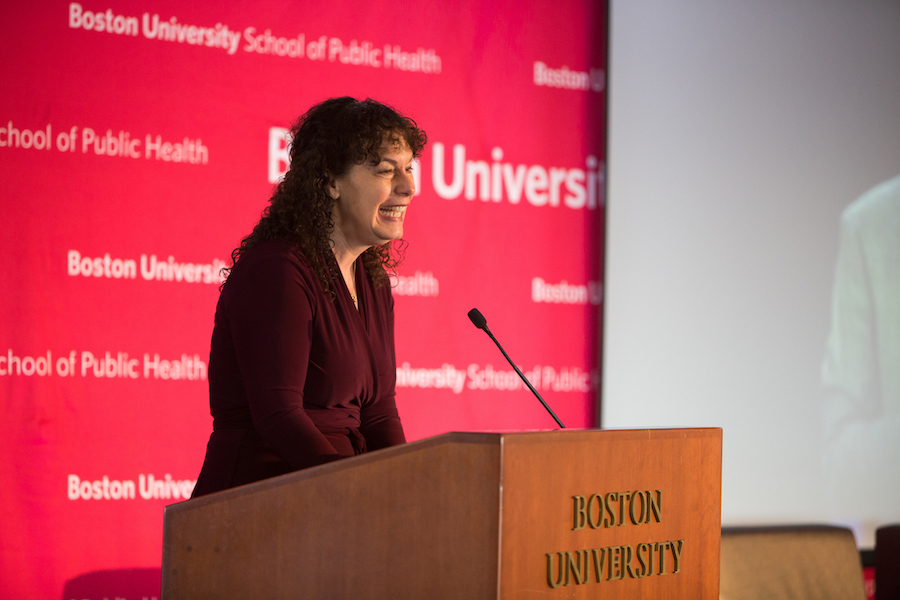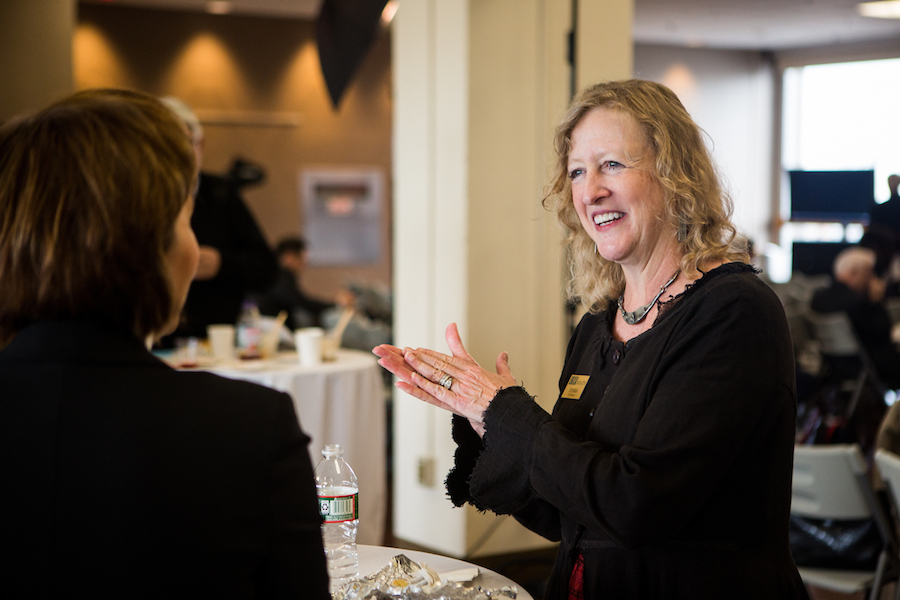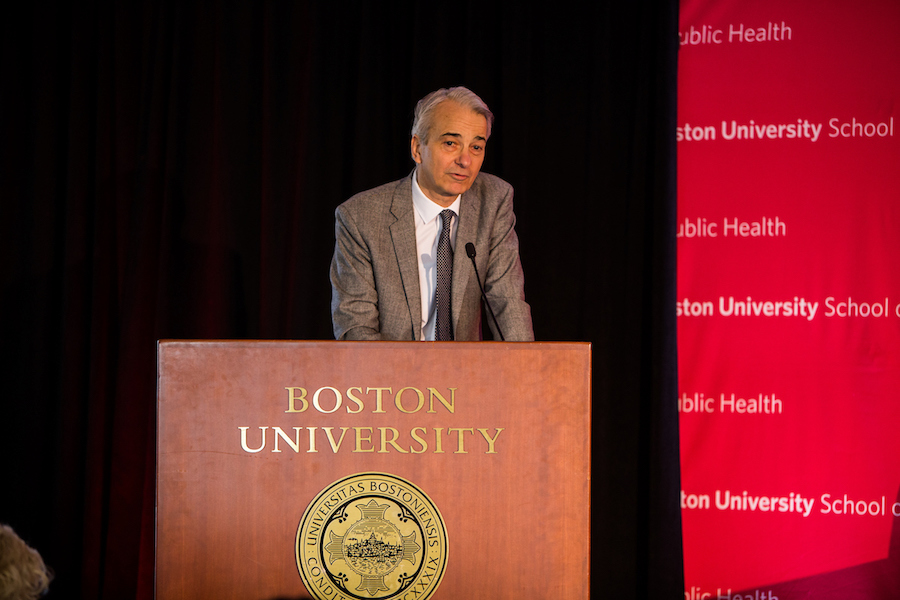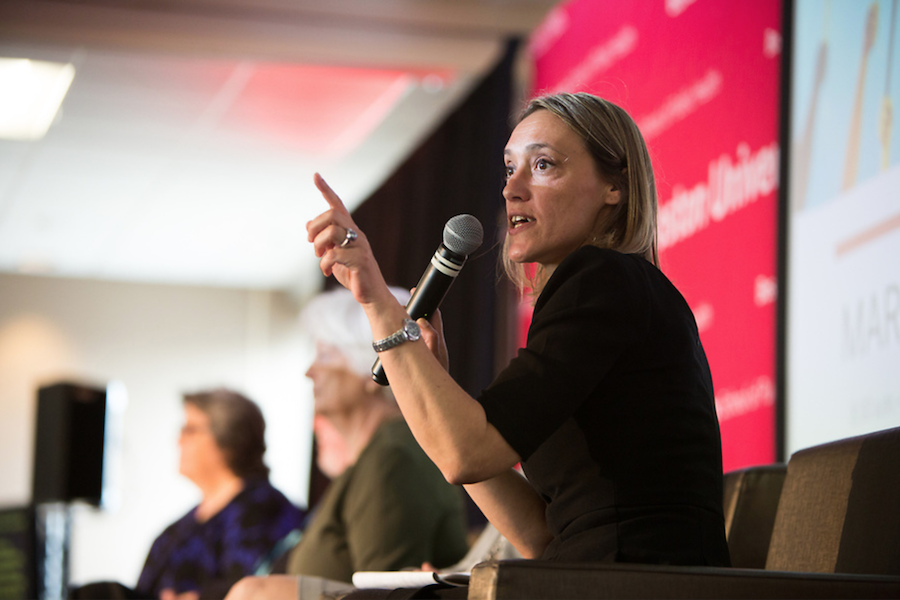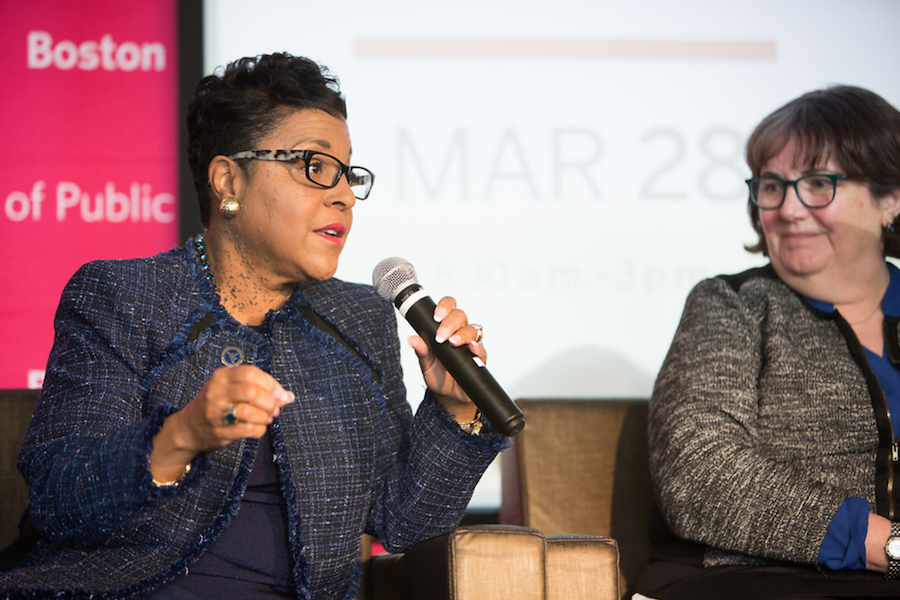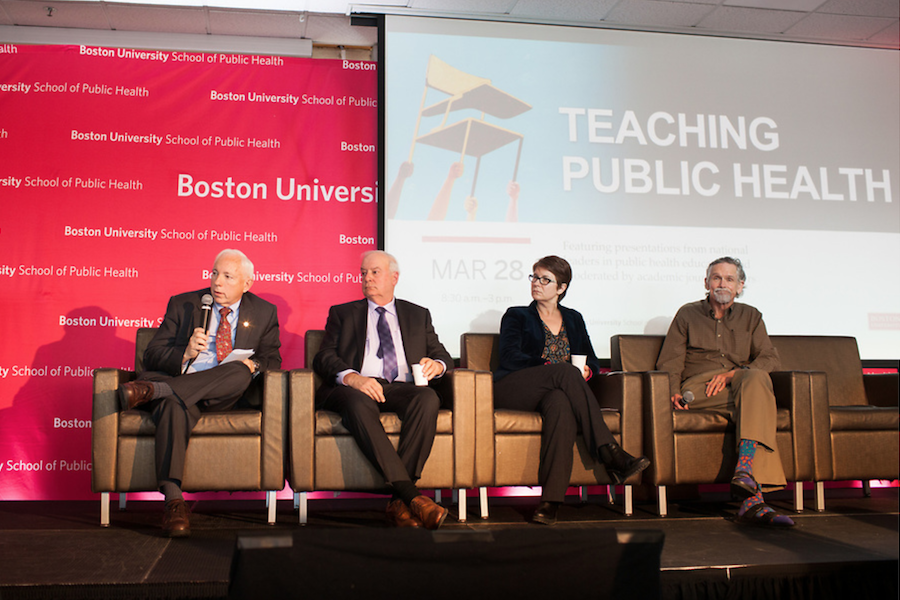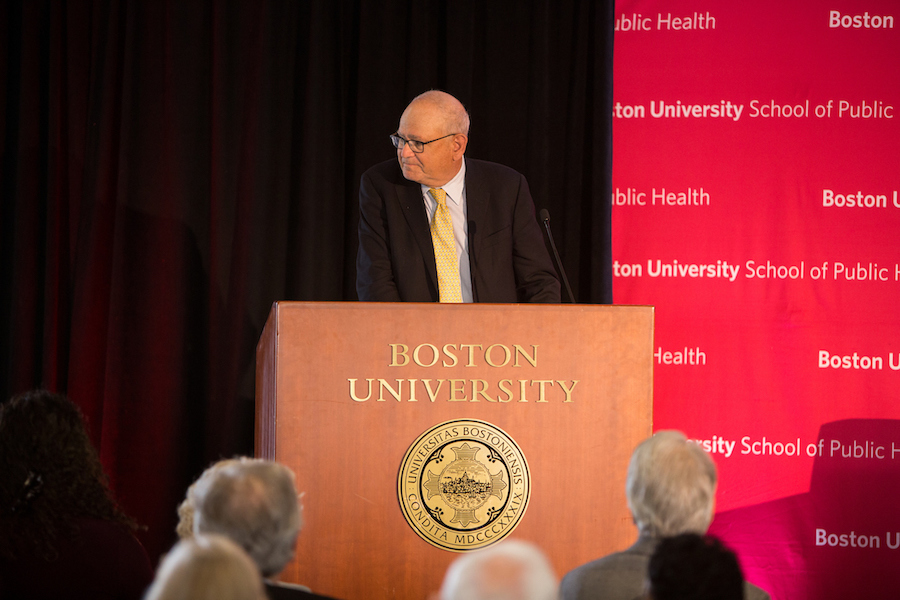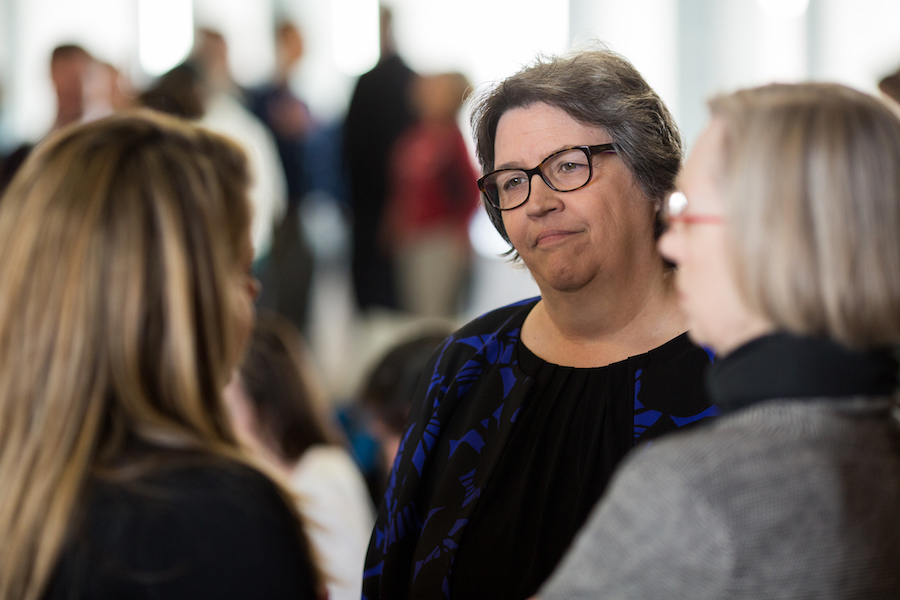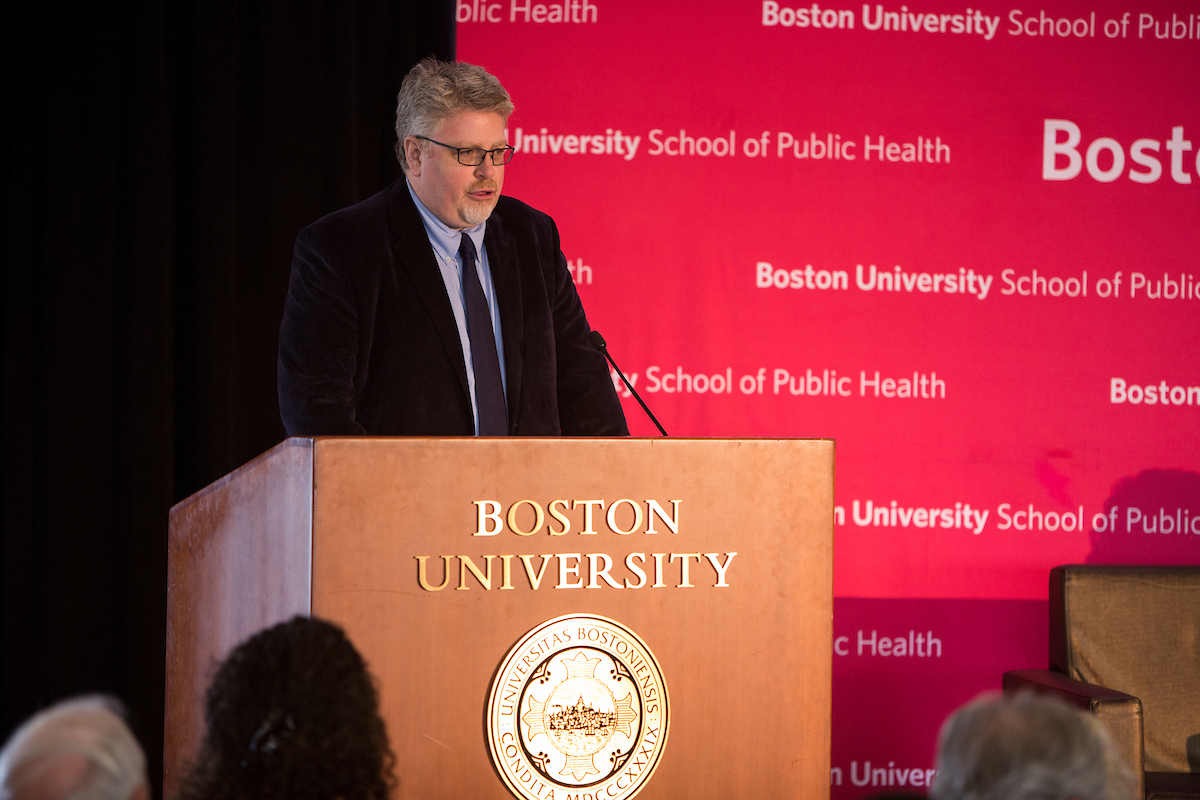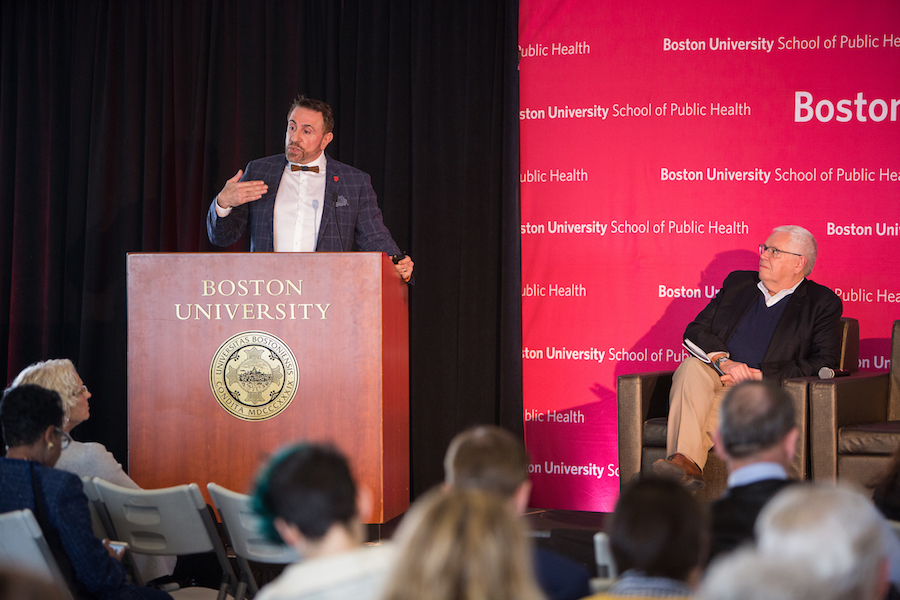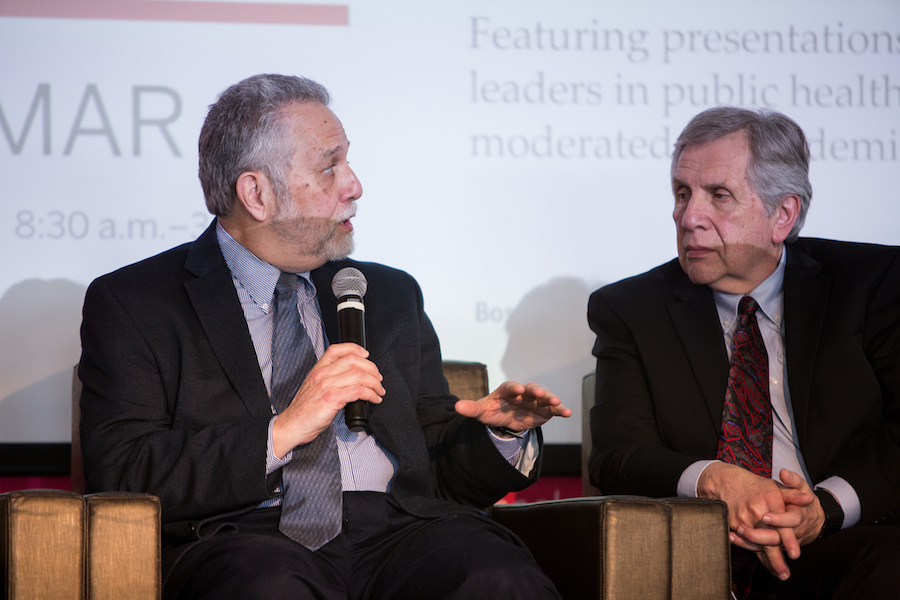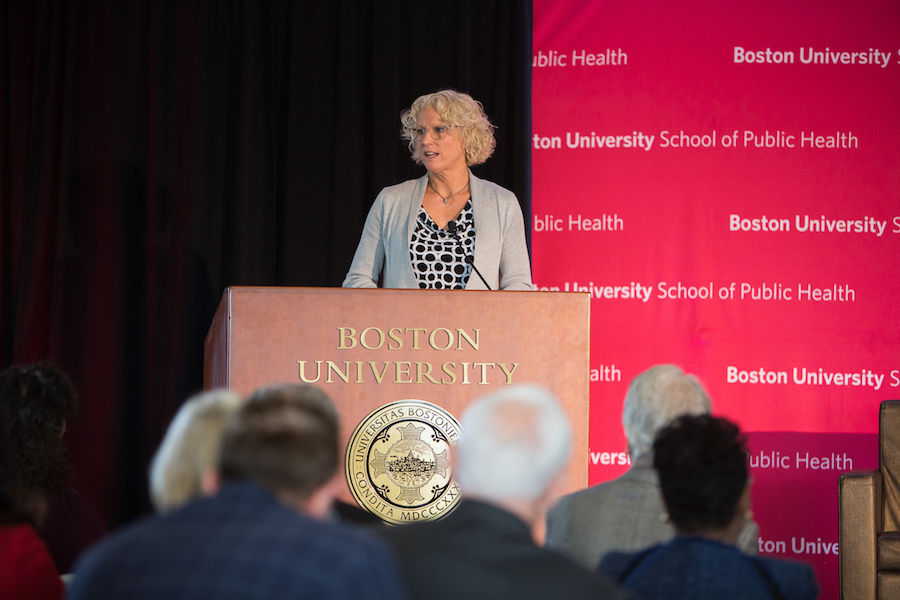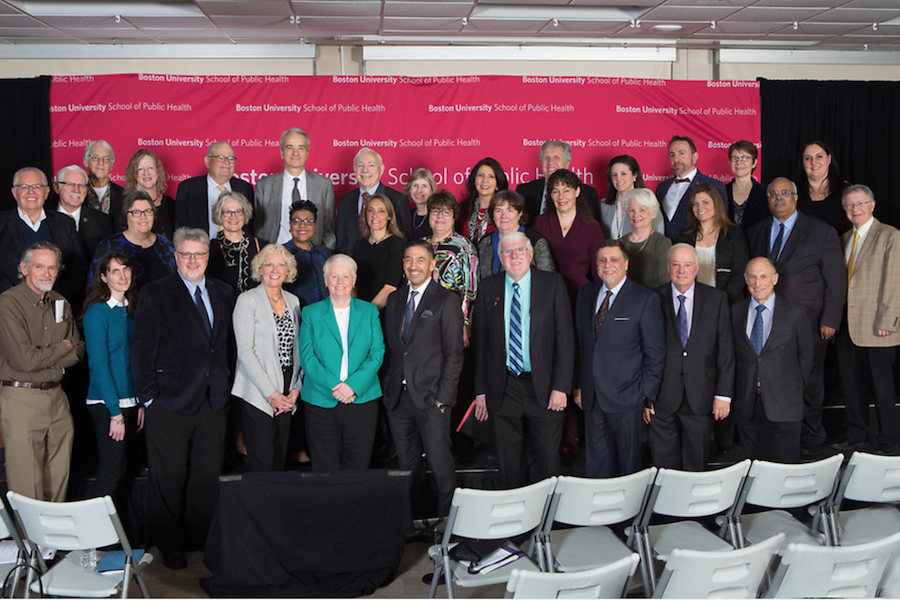‘Not Changing Is Not Acceptable’.
As issues such as climate change, gun violence, and healthcare costs become more urgent, public health educators are increasingly recognizing the need to change teaching modalities to reflect the needs of an evolving world.
How to enact those changes was the subject of a daylong Dean’s Symposium, “Teaching Public Health,” held on March 28 at the School of Public Health. The symposium featured nine sessions and 37 speakers and panelists, including deans, faculty, public health organizations leaders, and academic journal editors.
“Higher education can either reinvent itself or become obsolete,” said Laura Magaña Valladares, president and chief executive officer of the Association of Schools and Programs of Public Health (ASPPH). “The advances we are making are good, but they are not enough.”
Magaña Valladares, who was the academic dean of Mexico’s National Institute of Public Health (INSP) before taking the lead at ASPPH, presented her vision of a future where technology allows for radically different ways of educating. Curricula should focus on mastery, she said, not on reaching certain benchmarks in set periods of time. Higher education should also become a lifelong process instead of a once-in-a-lifetime event, with professionals returning to learn new skills as needed.
“We need to mentor instead of lecture, and in order to do this we will need to come out from our silos and our standalone institutions into alliances and networks,” she said. “We need a new mindset to really revolutionize education, and the time to rethink and redesign the entire higher education system is now.”
Donna Petersen, dean of the College of Public Health at the University of South Florida and senior associate vice president of USF Health, agreed. “We are in the midst of an incredible transformation,” she said. “Not changing is not acceptable.”
Petersen chaired the 2011–2015 ASPPH task force “Framing the Future: The Second Hundred Years of Education in Public Health.” The 1915 Welch–Rose Report, which first described a model for public health education, focused on training physicians to lead the health departments that were just beginning to appear; the “Framing the Future” report called for a reshaped master’s of public health (MPH) program that focused on foundational competencies and practice-based learning.
Evidence is vital to the work of reshaping public health education, said Marie Deiner-West, chair of the Master of Public Health Program and inaugural Abbey-Merrell Professor of Biostatistics Education at the Johns Hopkins Bloomberg School of Public Health. “We need to teach the skills that are useful in the workplace, not what we think is useful in the workplace,” she said. That requires workforce analysis and other data collection, as well as sharing assessment methods between schools and programs, “as we are today.”
Several speakers underscored the importance of active learning in public health, a teaching approach that “strives to more directly get students to participate in the learning process rather than to be passively learning,” said David Kleinbaum, professor emeritus of epidemiology at the Rollins School of Public Health. “How it is taught is as important as what is taught.”
Nancy Kane, professor of management and co-chair of the Task Force on Educational Quality at the Harvard T.H. Chan School of Public Health, argued for using a case- and discussion-based teaching method to “flip the classroom.” When students have a public health scenario to work with, Kane said, they are able to guide where a class goes, developing skills in communication, critical thinking, and other areas that will remain relevant long after a piece of hard knowledge becomes outdated. Working something out for themselves also makes students retain much more, Kane said: “I get emails five years later saying, ‘Remember that case? It was helpful to me today in my job.’”
Students also need to be challenged in fundamental and personal ways, said Yvette Cozier, assistant dean for diversity and inclusion and associate professor of epidemiology, and Sophie Godley, director of undergraduate programs and clinical assistant professor of community health sciences. “Structural inequities are often reflected in our classrooms,” Cozier said during a panel on diversity and inclusion. Addressing unconscious biases, Godley asked, “If we can’t hold each other accountable in the classroom, how can we hold each other accountable in the real world?”
Many speakers also pointed to the March for Our Lives rallies four days earlier as an example of how young people are increasingly recognizing the intersection of public health and social justice. “They are clearly engaged,” said Audrey Ceschia, editor in chief of The Lancet Public Health. Kathryn Cardarelli, assistant provost for faculty advancement at the University of Kentucky, agreed. “The students are out there ahead of us,” she said.
Georges Benjamin, executive director of the American Public Health Association (APHA), echoed the sentiment. “These young men and women are absolutely fearless,” he said. A former secretary of health for the state of Maryland, Benjamin described the way public health increasingly combines “the basic work that we still have to do” in essential services and preparedness with greater engagement with social justice and the new challenges of globalization and technology. That is the public health landscape students will be taking over soon: “The joints ultimately do give out,” he said. “We all have to retire.”
Sandro Galea, dean and Robert A. Knox Professor, and Lisa Sullivan, associate dean for education and professor of biostatistics, convened the symposium around their forthcoming book, Teaching Public Health, which includes chapters written by many of the day’s speakers. The international audience of almost 300 came from as far away as London, Berlin, and Tel Aviv, with more than 340 more watching the symposium via Livestream. Carey Goldberg, editor of CommonHealth, served as master of ceremonies for the day’s proceedings.
“This is an extraordinarily exciting time in terms of teaching public health, because the world is changing, the world’s needs are changing, and how we teach and what we teach and when we teach and the modality of how we’re teaching is changing,” Galea said in introducing the day’s program.
“We have a tremendous opportunity to shape the future of public health education,” Sullivan added.
